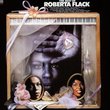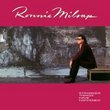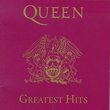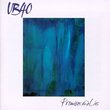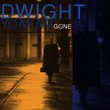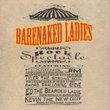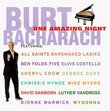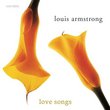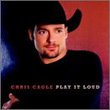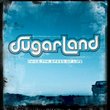| All Artists: John Lee Hooker Title: Alone - First Concert Members Wishing: 2 Total Copies: 0 Label: Blues Alliance Original Release Date: 5/23/1996 Re-Release Date: 5/21/1996 Album Type: Live Genres: Blues, Pop, Rock Styles: Contemporary Blues, Delta Blues, Traditional Blues, Regional Blues, Detroit Blues, Electric Blues, Acoustic Blues, Singer-Songwriters Number of Discs: 1 SwapaCD Credits: 1 UPCs: 5413992550180, 727489300925 |
Search - John Lee Hooker :: Alone - First Concert
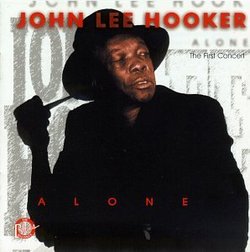 | John Lee Hooker Alone - First Concert Genres: Blues, Pop, Rock
|
Larger Image |
CD DetailsSimilarly Requested CDs
|
CD ReviewsA Smoldering 40-Minute Relic from 1976 09/04/1998 (5 out of 5 stars) "Anyone who has been lucky enough to see the Boogie Man in one of his increasingly scant recent performances has seen him surrounded, and arguably nearly smothered by, a large, powerful band. Basking in the rays of a voice that has mellowed like cognac over the years, they might wonder what John Lee sounded like as a stripped-down, one-man show: just him, his guitar, and his abstrusely-timed left foot. This is it.Hooker first cultivated his solo electric style in Detroit, but this album comes over 30 years later as a nascent superstar Hooker, wary from the creative limitations of playing with the group Canned Heat, is ready to lay down a live, back-to-basics masterpiece with alacrity. Playing in front of a cozy New York crowd after taking a little nip with a backstage friend, Hooker fully reveals his genius and renders a seminal, smoldering 40-minute relic.Hooker develops his own genteel rapport with the crowd, not unlike that of B.B. King on Live at the Regal, commenting between songs, taking requests, and thanking them for their cheers and applause, for "the sounds of their hands." Before "I'm Bad Like Jesse James," he implores the audience to "dig the lyrics on this and just dig what I'm gonna do to this cat. 'Cause I'm gonna ruin him this mornin'." This loosens up his crowd and creates a relaxed atmosphere, an atmosphere Hooker feeds off of and then soars into with full stride on the third number, "Dark Room."Asked about is guitar style, Hooker once said he prefers mean, mean licks to fancy playing. There is a banquet of those licks here, beginning with the ear-splitting tension-breaker after the second verse of "I Miss You So." Hooker continues on with a playful version of "I'm Bad Like Jesse James," diverting quite a bit from the lurid version on Live at the Cafe Au-Go Go album seven years earlier. "Dark Room" showcases John Lee's mastery of blending soulful singing with stinging licks... there is a sublime improvisational moment where he abruptly halts a guitar lick and impetuously beckons his guitar, "Hush." The lyrics on this album are so powerful and flamboyant one can't tell whether they are improvised or have been revised a thousand times over. On "When My First Wife Left Me," he declares, "Ain't but the one thing that worries me so bad, I hope she ain't learned to call no other man Daddy, You know that's what's worrying me." This phrasing, along with the countless other subtleties of his one-of-a-kind style, is a serendipitous bubble-bath for the Hooker fan, as is the entire record itself. It goes without saying Hooker delivered a well-rewarded encore with "One Bourbon, One Scotch, One Beer." This last classic, like some of his more brilliant works, doesn't really start to shine until three full minutes into the song, with him lyrically improvising a hilarious scene at a bar.Not surprisingly, this is one of a handful of enduring, select recordings re-issued on the Concord Blues Alliance label, which touts it collection of "classic blues recordings at their most raw, powerful and uncompromising." Effortlessly as it seems, Hooker compromises nothing: this is surely one of his most brooding, visceral, and mature sets ever waxed."
|

 Track Listings (8) - Disc #1
Track Listings (8) - Disc #1